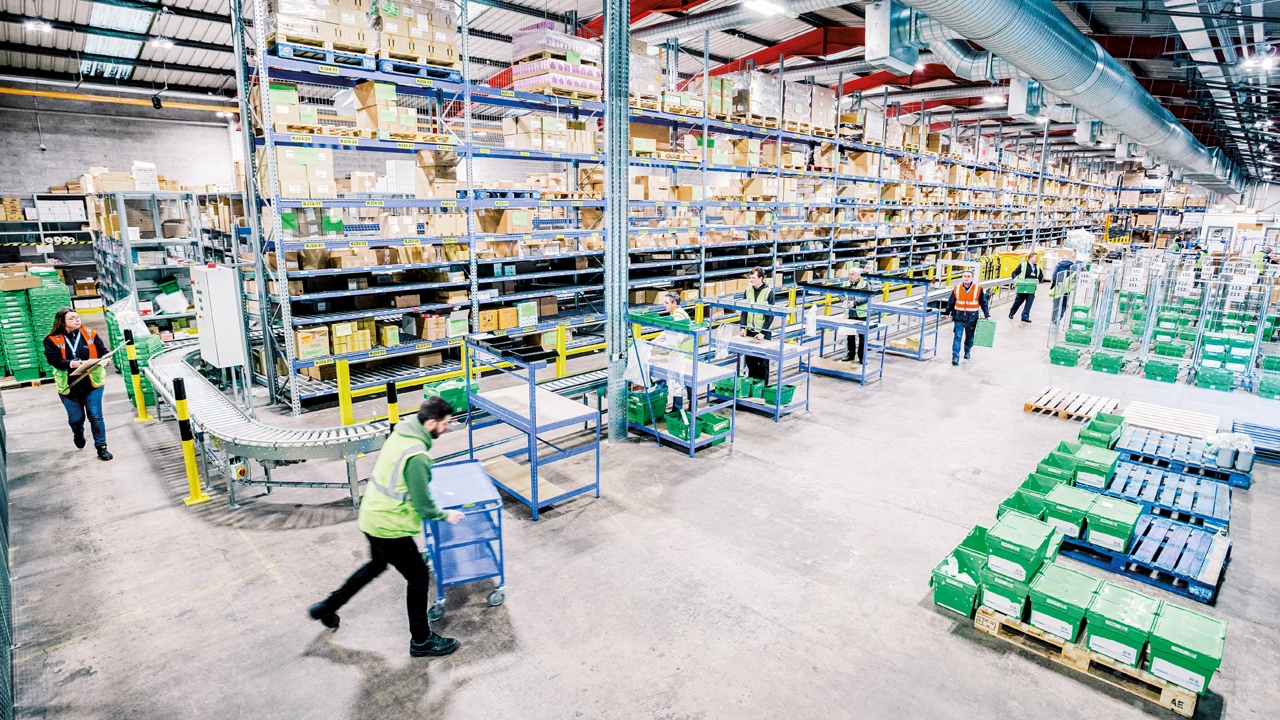In Analysis
It’s time to delve deeper into health discussions. Broaden your understanding of a range of pharmacy news and topics through in-depth analysis and insight.Bookmark
Record learning outcomes
Focusing on sustainability is “hand in glove” with running an effective, profitable business, Alliance Healthcare operations director Matt Addison tells Pharmacy Magazine in an interview at the company’s Exeter service centre
The occasion for the visit was Alliance’s recently announced pledge to make its operations net carbon zero by 2030 – a demanding target but one that Matt Addison is determined to meet.
Addison frequently references the growing NHS emphasis on slashing carbon emissions as an indication of where the medicines wholesale sector needs to be headed and sets out some of the measures the business is adopting to become net zero across scopes 1 and 2 of the organisation (i.e. the carbon emission sources that are most under a company’s control).
These include reducing its use of single-use plastic secondary packaging by 60 per cent by September 2022, investing in reusable totes, replacing its fleet vans with more efficient Euro 6 engines and increasing fuel efficiency through the use of telematics and optimised driving styles.
Work is already well underway, says Addison. Alliance now buys all its electricity from sustainable sources and has increased recycling by 6 per cent since 2019. While environmental management has always formed part of the company’s ethos, "carbon sustainability requires a bigger effort from us than in the past", he says.
Going electric
The company’s extensive fleet of vans and HGVs accounts for by far the biggest share of its carbon footprint – 70 per cent – and poses the biggest challenge for an environmentally-minded operations director.
Again, efforts have already been made to try and curb fleet emissions. For example, rationalising the complex network of van routes has helped to save three quarters of a million miles each year, and extensive work has been done with drivers to promote a more carbon-efficient driving style.
The short-term plan is to switch the van fleet over to Euro 6 but by the time the next fleet review is due it will be essential to go further, says Addison, who explains that the wholesaler is committed to trialling alternative fuel vehicles by the end of 2022. "If I don’t act now to trial a van, prove it works, prove it stays in temperature by the time of the next investment cycle, I won’t be ready for 2030," he says.
"It is an industry problem but I know I’ve got to be at the front of the industry pack. I’ve got to pull in all my supply chain contacts and think about how we work with manufacturers to find a solution."
Addison says the electric options that are on the market now won’t cut it. The strongest candidate is a Mercedes vehicle offering 90 miles of range, which given the cold storage requirements and payload demands involved would be closer to 70 when actually delivering medicines.
There are some shorter routes that this could work for, but not enough to make a sufficient dent in the company’s emissions, he says, adding that its service centres also need to be modernised to facilitate on-site charging.
While he is committed to running Alliance’s 1,000 vans on electric as soon as possible, the likely solution for more sustainable HGVs will be hydrogen fuel.
Engaging staff
Getting staff on board with green initiatives is a key priority, says Addison. "It starts on colleague engagement – the way they’re going to work tomorrow will be very different to today. Their working environment will be different, the vehicle they drive will be different, how they come to work and go home – getting to a net carbon neutral world requires a lot of change.
"People joining a company now expect different things in terms of social responsibility and credibility than even five or 10 years ago."
Next on the list is customer service, with Alliance aiming to make at least 96.5 per cent of all deliveries within 30 minutes of the scheduled time. Cost and efficiency, while vitally important, come below these top priorities.
Environmental focus
The fact that Alliance, which for many years was owned by Walgreens Boots Alliance, was acquired by AmerisourceBergen earlier this year gives the company more "freedom" to focus on environmental objectives, says Addison.
The wholesaler’s new parent company has lent its full support to the 2030 pledge, he says. "Carbon sustainability is absolutely up there on shareholders' list of priorities, along with driving value for the business. They are not going to allow us to do anything from a sustainability point of view just because it’s the right thing to do; it has to be right and make sense for the business."

